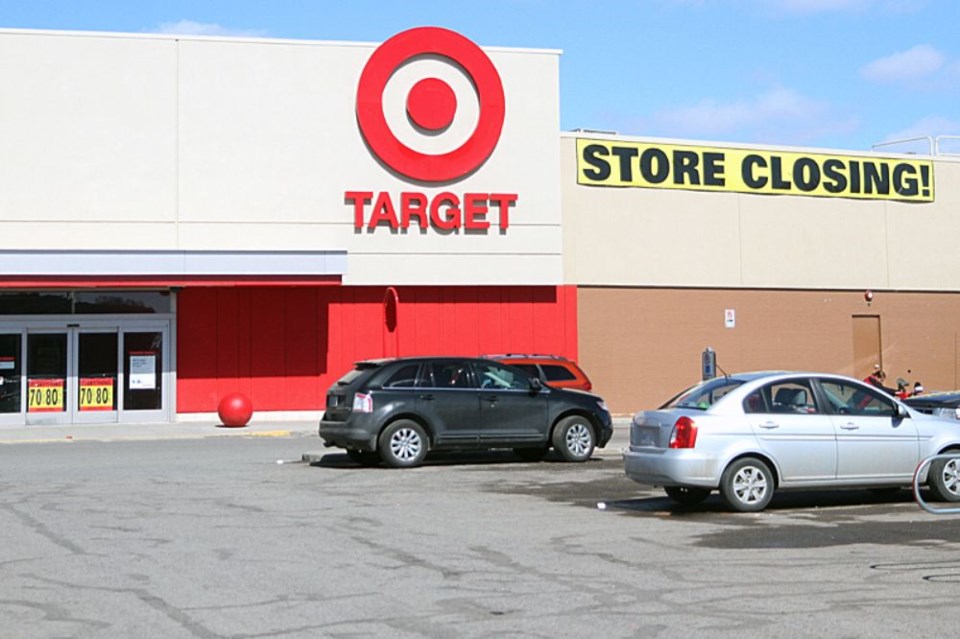THUNDER BAY – In just a few months the country’s retail market has undergone a dramatic shift.
Already in 2015 the country has seen the withdrawal of Target’s Canadian operations as well as the consolidation of the Future Shop and Best Buy brands, which happened shockingly on Saturday as all Future Shop locations were locked, to either be closed or converted.
Charla Robinson, president of the Thunder Bay Chamber of Commerce, attributed the changes to a soft Canadian economy rather than specific local issues though she said the prospects of a new major retailer opening up shop in Thunder Bay anytime soon is unlikely.
“I’m not sure big box retailers are looking to expand. From what I understand a lot of the big boxes are looking at holding rather than growing at this point,” she said on Monday.
“They realize the retail market is shifting. In the short term don’t expect to see a great resurgence of new brands coming to town.”
Mayor Keith Hobbs has been trumpeting the possible arrival of Costco to the city, and while the company says the city is on its radar, they've yet to make anything official.
Livio Di Matteo, an economics professor at Lakehead University, said the city’s retail market growth lags behind provincial averages.
While Thunder Bay has seen growth of about 2.5 per cent annually in the retail sector in the last decade, Ontario has experienced an average of three per cent annual growth.
The exploding popularity of online shopping could be one factor in the changing national landscape.
“There is a whole adjustment going on in the retail sector,” Robinson said.
“Certainly in Thunder Bay we’re feeling it with some losses in jobs and that’s never a good thing but I think a lot of it is due to a shift in online shopping.”
Di Matteo added online shopping is expected to account for nearly 14 per cent of all Canadian retail sales by 2018.
 He points to the city’s relative proximity to American markets as a factor in the slower growth.
He points to the city’s relative proximity to American markets as a factor in the slower growth.
“There’s still a high propensity to cross-border shop in Thunder Bay. If you look at the numbers at Pigeon River (border crossing) they’re probably up about 10 per cent since 2001,” Di Matteo said.
“The trend is still now pretty much upwards. Even now with the (Canadian) dollar dropping it’s not that sensitive. The numbers tend to be there and people tend to shop a lot across the border.”
Despite the shift, Robinson is not forecasting doom and gloom for the rest of the city’s retail market.
Instead, she sees the possibility of smaller enterprises competing for local retail dollars.
“It’s a unique situation because we have so few offerings it may offer an opportunity for local businesses to find out what that niche is the customer is looking for and meeting that need,” she said.
